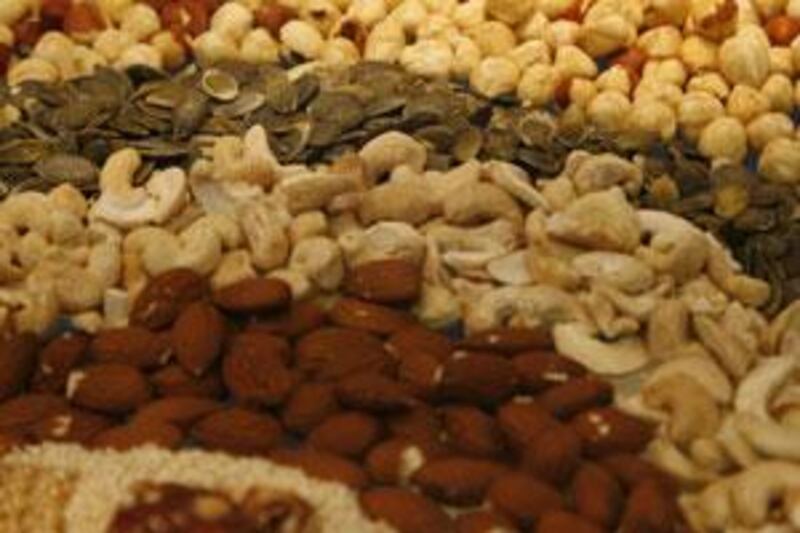Nuts have long been shunned because of their high calorie and fat content, but new research is proving that the type of fat in nuts is actually responsible for the health benefits they impart. Nuts are rich in unsaturated fat, which plays a role in lowering LDL, low-density lipoprotein, or "bad" cholesterol. Aside from their healthy fat profile, nuts are also rich in fibre, vitamin E and are one of the best plant sources of protein.
The most notable health benefit of nut consumption is the link to a decreased risk of heart disease. One of the largest studies to date, published in the British Medical Journal, examined the health and eating habits of 86,000 women over 14 years. The study found that women who ate at least 142 grams (five ounces) of nuts per week had a 35 per cent lower risk of developing heart disease, compared to women who rarely ate nuts. Another large study published in the Archives of Internal Medicine found that men who consumed nuts two or more times per week were significantly less likely to die of a heart attack compared with men who rarely consumed nuts.
Aside from heart health, at least one other major study has found that nut consumption may play a role in the prevention of type 2 diabetes, something especially relevant to the UAE where the rate of diabetes is one of the highest in the world. The study found that women who ate 28 grams (one ounce) of nuts at least five times per week were 27 per cent less likely to develop type 2 diabetes compared to women who rarely ate nuts.
There's no denying that nuts can be part of a healthy diet, but the question remains: which ones are the healthiest and how much should you have? If you're looking to add nuts to your diet, there are a few that stand out from a nutritional standpoint. Walnuts lead the pack for their omega-3 content, an essential fatty acid that plays a role in brain function as well as normal growth and development. In terms of fibre, almonds come out on top for having 4 grams per 30 gram serving. If you're looking for protein, peanuts are the way to go - they deliver almost 10 grams of protein per 30 gram serving.
Despite being rich in heart-healthy unsaturated fat, all nuts are high in calories, which means a little goes a long way. An appropriate serving of nuts is 30 grams - that's about 24 almonds, 18 cashews, 20 pecans or 14 walnuts. A 30 gram serving of nuts dishes up about 200 calories, which can quickly add up. While nuts can certainly be part of a healthy diet, there's one catch. Nuts should replace other high fat foods in the diet, preferably foods that are high in saturated and trans fat. Adding nuts to a diet that is already high in fat and calories could lead to weight gain and more health risks. That's why moderation is key.
But sticking to a 30 gram serving is no easy feat. It doesn't take much to overindulge on nuts and consume three or four servings worth at one sitting. To keep your serving size in check, try measuring out your serving of nuts before you start eating. Eating directly from a package is a sure-fire way to overindulge. Not only is it hard to stop eating once you've started, it's difficult to gauge how many nuts you've actually had.
A trip to any major grocery store in the UAE reveals row after row of neatly displayed nuts in a variety of flavours, but buyer beware - these additives can impact their health benefits. Many flavoured nuts have added salt, which negates many of the heart-healthy benefits, so you're better off choosing unsalted nuts. Be wary of chocolate-covered nuts, or oil-roasted nuts as well. Given the choice of roasted, blanched or unblanched - unblanched is the way to go. The high temperatures used to roast and blanch nuts can destroy some of the essential fatty acids.
As for nut butters, they can also be a healthy addition to your diet, but in moderation. Two tablespoons (25 ml) of nut butter is equivalent to a 30 gram serving of nuts. Choose nut butters without added salt or sugar for the most health benefits. Peanut butter is a great source of protein, while almond butter is a source of calcium, magnesium and potassium. If you're looking for healthy ways to add nuts to your diet, try adding a handful into a bowl of low-fat yogurt, tossing some with a green salad or mixing a few chopped nuts into a homemade burger recipe.











